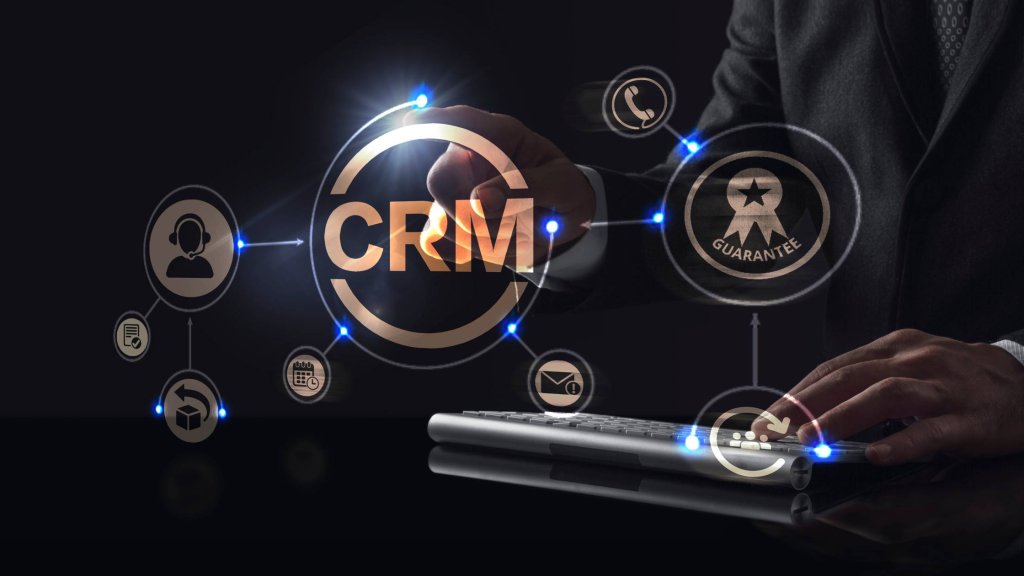VIEW BY TOPIC
- Finding Customers
- Business Systems
- Managing Employees
- Leadership
- Managing Money
Related Posts

Ready to Grow Your Business Fast?
Here’s How I Grew Five Businesses, and Eventually Sold One to a Fortune 500 Company.

Factors to Consider When Deciding Which CRM Is Right
As businesses expand and evolve, the question of which CRM to choose for managing customer data becomes inevitable. A well-chosen system holds the potential to drive productivity gains, ranging from streamlining marketing initiatives and sales processes to enhancing customer service operations.
However, amid the vast array of CRM choices, finding the perfect fit can feel like searching for a needle in a haystack. This article is designed to underscore the importance of deciding which CRM is right and delve deeper into the key considerations that should shape your choice, ensuring that it’s an informed and strategic one.
Clearly Define Your Business Needs

The initial step in choosing the CRM is identifying your business needs. What functionalities do you need? Do you require a CRM that can handle sales automation, manage marketing campaigns, take customer support, or all of these? By establishing these requirements upfront, you will have a benchmark against which you can evaluate CRM options.
Scalability and Customization
Another crucial aspect to consider when selecting a CRM is scalability and customization capabilities. As your business grows and evolves, so should your CRM system. Ensure that the chosen CRM solution has the flexibility to adapt to your expanding business needs without causing disruptions or requiring process changes.
Furthermore, take into account how customizable the system is. Can you customize the CRM to align with your organization’s industry requirements or unique workflows? A one-size-fits-all solution may only adequately address some aspects of your business processes. Therefore, it is crucial to find a platform that can be tailored to meet your needs for long-term success.
Having a user interface is essential for adoption by all teams within your organization. An intuitive interface makes it easier for employees to quickly learn and navigate the system without requiring training.
Consider how easily users can access information within modules of the CRM and perform everyday tasks like creating leads or generating reports. A complex interface with features may lead to frustration and resistance from employees who need help with adoption.
Integration capabilities are vital for data management and streamlined processes. A CRM system should seamlessly integrate with your organization’s tools and software rather than operating in isolation.
Consider the compatibility of the system with systems in place, such as email marketing software, accounting tools, or project management platforms. Look for a CRM that offers built integrations or an open API, allowing easy integration with your existing tech stack.
Mobile Accessibility
In today’s fast-paced business world, accessing customer information on the go is crucial. Having a CRM solution that offers accessibility allows sales teams to update data, manage leads, and communicate with customers no matter where they are.
When considering a platform, evaluating its performance on devices is essential. Check if it provides an app or a responsive web interface. Accessing information anywhere can significantly enhance productivity and customer service.
Data Security
The protection of customer data is essential for any business. When assessing CRM options, consider the security measures implemented by each vendor to ensure your data remains safe from access or breaches.
Look for features such as role-based permissions, encryption protocols, regular backups, and compliance certifications that guarantee the safety and security of your data within the system.
Customer Support

With an interface and well-designed system architecture, there may still be occasions when you need technical support or assistance from the vendor.
Research what types of customer support vendors provide – do they offer email support exclusively? Is phone support available during business hours? When looking for a CRM provider, finding one that gives support channels, like chat and knowledge base resources, is essential. This way, you can easily find the answers you need when needed.
Another crucial factor to consider is pricing. Consider costs and ongoing maintenance fees to determine which CRM fits your budget allocation.
Different providers have pricing models. Some charge a fee per user, while others operate on a subscription basis. It’s essential to assess whether their pricing structure aligns with your organization’s anticipated growth and budget constraints.
Conclusion on CRM
In conclusion, selecting the right system requires consideration of factors such as identifying business needs, scalability, customization options, user-friendly interface, integration capabilities, mobile accessibility, data security measures, customer support availability, and pricing models. By evaluating these factors and researching the available CRM options, you can make an informed decision that aligns with your business goals and objectives.














